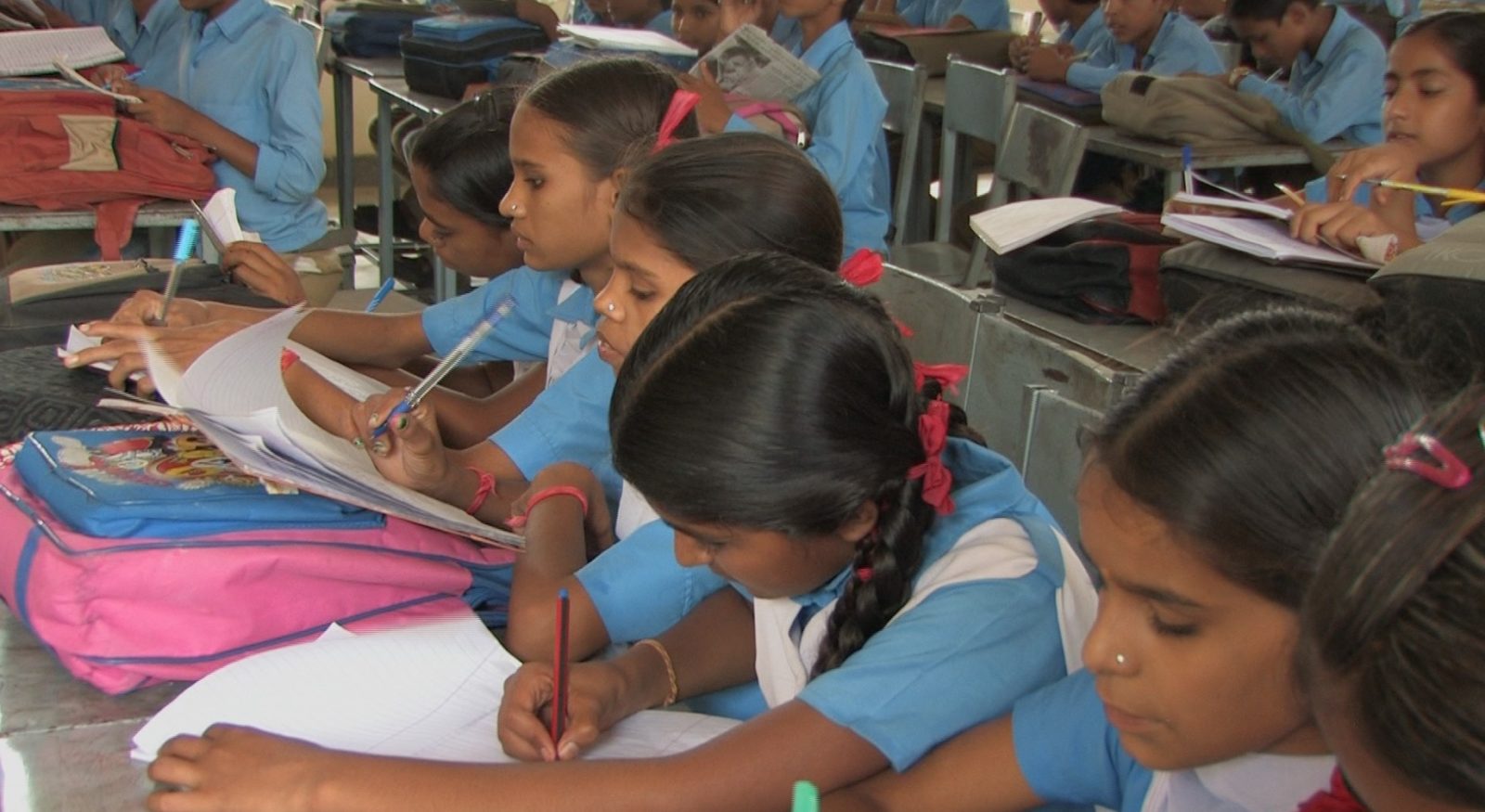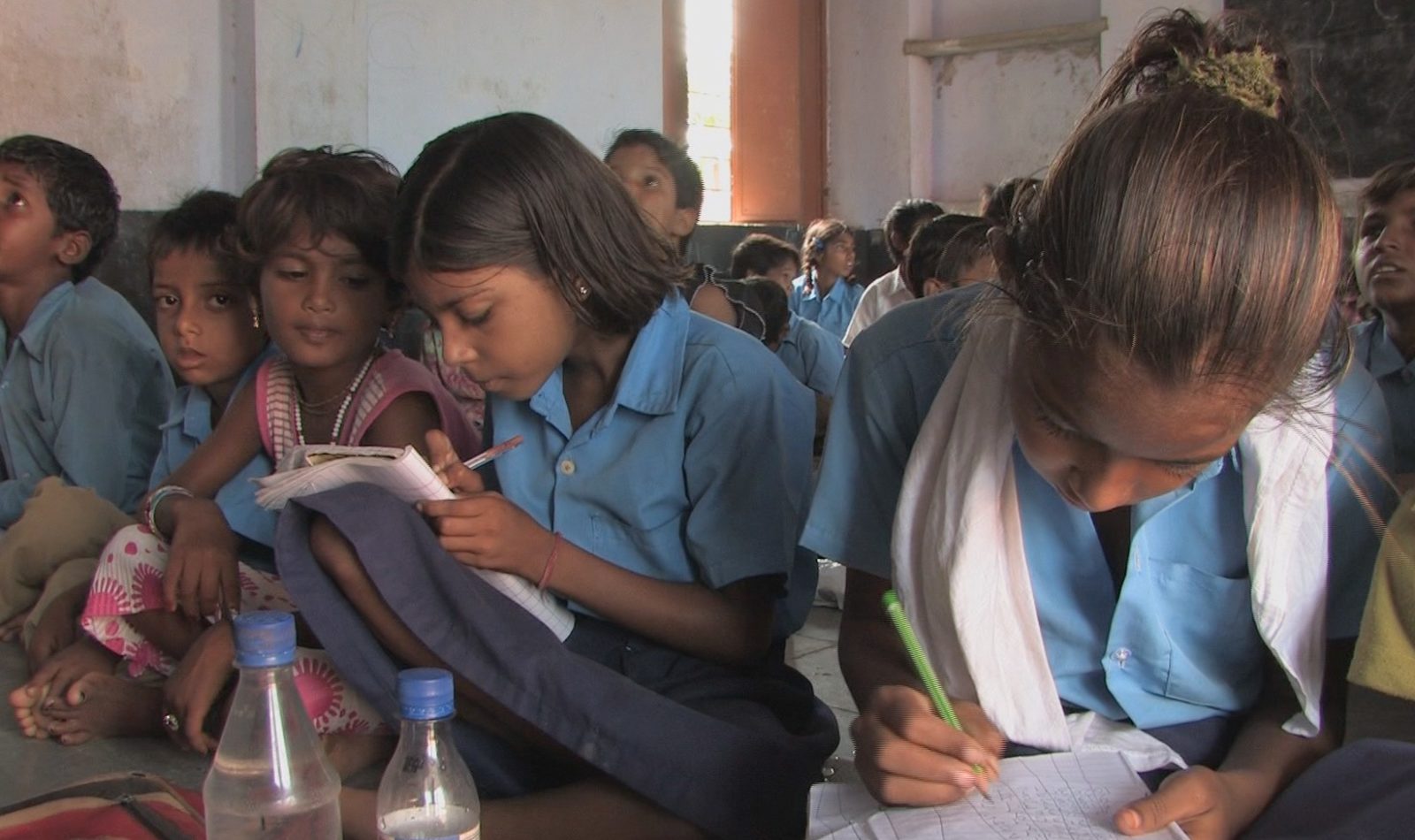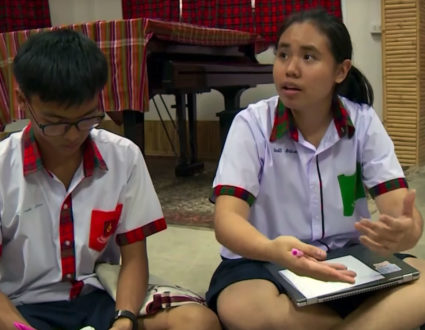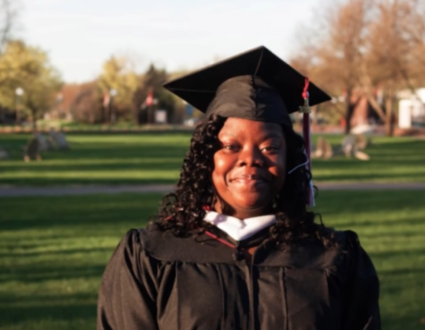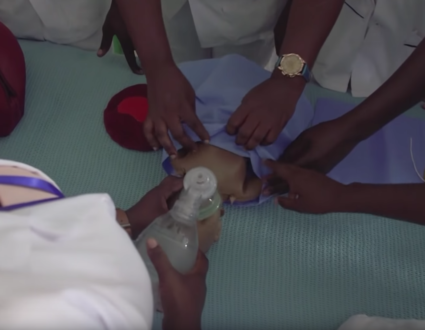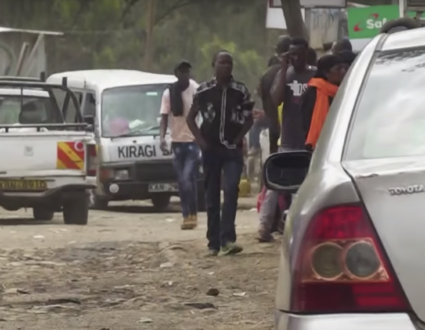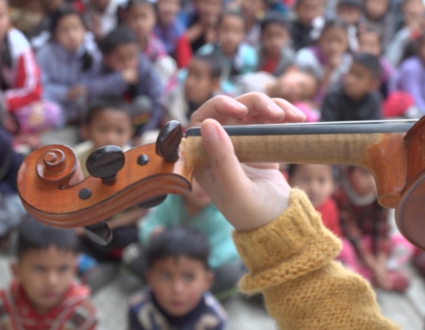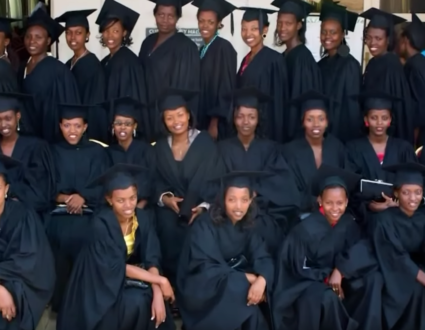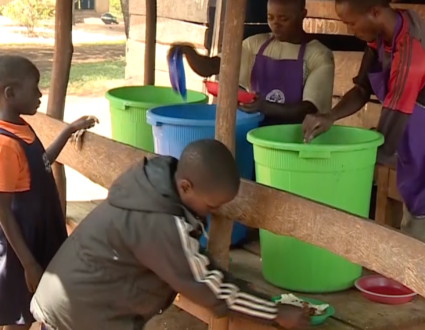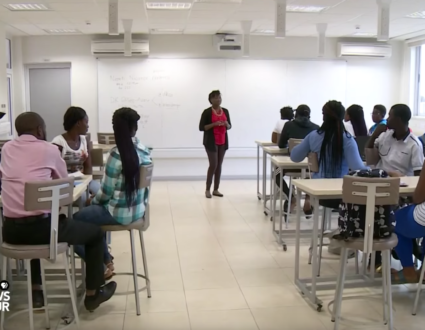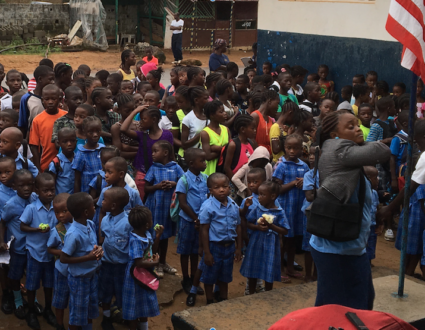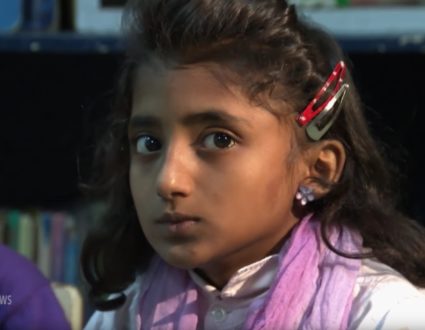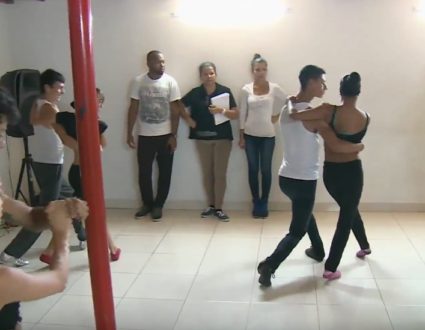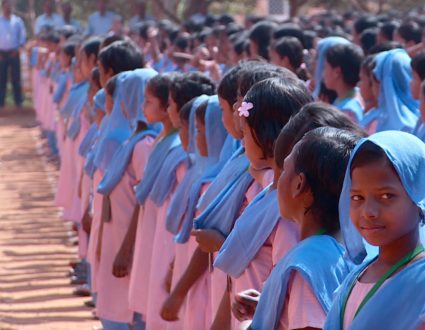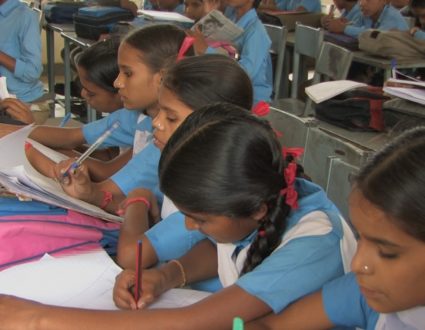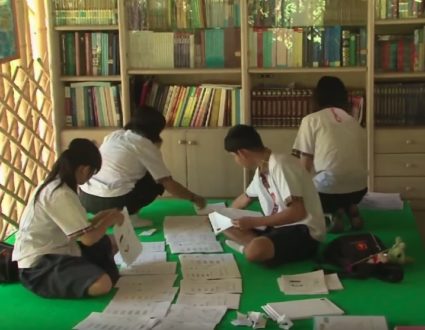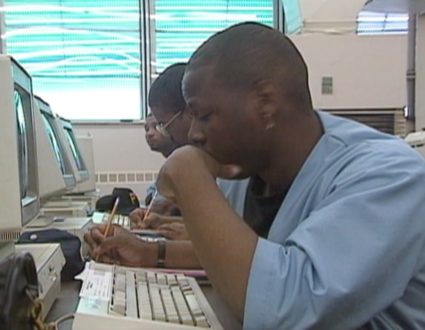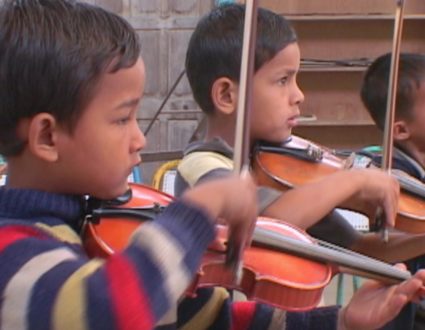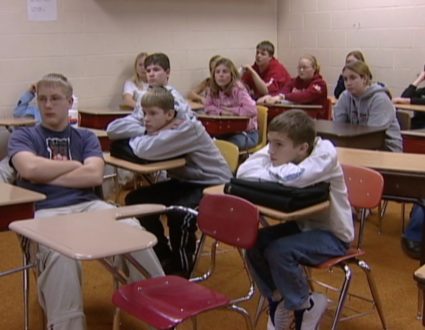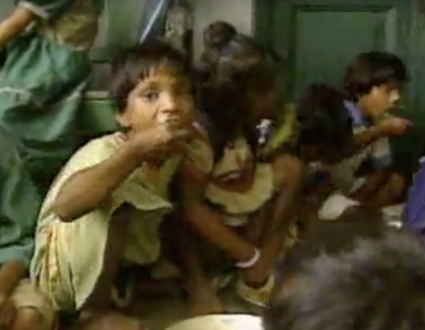JEFFREY BROWN: Next, Fred de Sam Lazaro reports from India on a group that’s put together perhaps the world’s largest campaign to improve remedial education.
His story is part of our Agents for Change series.
FRED DE SAM LAZARO: Madhav Chavan is trying to revolutionize the way India’s children learn and the way they are taught, starting as early as possible. As these preschoolers identify the first letter in Hindi for the word mango, he egged them on.
MADHAV CHAVAN, Founder, Pratham: So what kind of face do you make when the mango is sour?
FRED DE SAM LAZARO: Unfortunately, Chavan says, as they get older, most of these children will be bound for schools that are failing their students on many levels, beginning with rigid, outdated methods of instruction.
MADHAV CHAVAN: This regimentation, rote learning, learning by heart, tell me the answer, that is what kids — kids are being taught.
FRED DE SAM LAZARO: Chavan founded a group 19 years ago called “Pratham,” or “First,” aimed at generating a love of learning. It has trained about 120,000 young tutors and community volunteers to run learning centers and camps.
So far, three million children have been tutored in rented rooms, houses of worship and in schools themselves in low-income communities across India.
Pratham’s goal is to change the way school has long been perceived here: a solemn temple of learning.
MADHAV CHAVAN: The kids think to be in school is to stand like that. And the whole informality, non-formality of the learning process is completely lost.
FRED DE SAM LAZARO: It takes the fun out of learning, basically?
MADHAV CHAVAN: Yes.
FRED DE SAM LAZARO: With profound consequences. Aside from an elite system that serves about 10 percent of India’s 140 million schoolchildren, Chavan says education, largely the domain of central and state governments, is in deep crisis.
MADHAV CHAVAN: After spending five years in a primary school, barely about 50 percent of kids can learn to the level of second grade. We have an old system of going from first grade to post-graduation for a certain number of kids, and others sort of fall by the wayside.
See, the complaint of the employers at the very entry-level positions is that the product of the schooling system is not even trainable — forget about employable.
FRED DE SAM LAZARO: It’s easy to see the problem unfold in the poorly equipped and crowded classrooms. A student-teacher ratio of 80-1 is not uncommon.
Rukmini Banerji is the author of Pratham’s Annual Status of Education Report.
RUKMINI BANERJI, Pratham: You’re a fifth grade teacher, and this is a typical classroom in India. You have kids there that are not even at first grade level. You’re a committed teacher. Who are you going to teach and with what?
FRED DE SAM LAZARO: You have 80 kids.
RUKMINI BANERJI: You have 80 kids. So you end up teaching the kids who are easiest to teach.
FRED DE SAM LAZARO: Under Banerji, a University of Chicago Ph.D., Pratham has developed programs to boost student achievement. It works with hundreds of schools like this one in the small town of Jehanabad in the populous eastern Bihar state.
Instead of clustering students by age and grade, they are tested, then grouped by skill level in math and reading, those able to read at a one-word level, for instance, a sentence, or a paragraph. Several months into the program, Principal Rizwana Parveen says there is marked improvement.
RIZWANA PARVEEN, School Principal: Children who could only read a letter are now almost reading paragraphs. And children who were reading paragraphs are now reading whole stories.
WOMAN: Now, what we’re going to do here is, we’re going to read these sentences carefully.
FRED DE SAM LAZARO: The next step is to get children to think and write about what they’re reading, as a Pratham tutor did with children in the small Bihar village of Supan Chak. Typically, students are required to memorize the text, whether or not they understand it.
WOMAN: Read it and understand it. After you have finished reading it, write what you think, OK?
RUKMINI BANERJI: You’re reading a story, so that you can then chat about it. Now, this chatting about it often doesn’t happen in our schools. We have very traditional notions about writing. Writing has to be correct, not writing has to be from your heart. So we often encourage kids to say — say what you feel.
FRED DE SAM LAZARO: Pratham begins its work in communities like this by testing children’s reading and math. Those with the lowest scores then attend an intense seven-day learning camp. This one was held just outside the village school.
There’s no shortage of enthusiasm among children we visited, who said they much preferred learning here than from their regular school. A peek inside may explain.
This is the village’s one-room schoolhouse. And it doesn’t look like it sees very much academic activity. It’s more like a storage shack. There’s cow dung cakes, which are fuel for cooking. There’s some pots and pans. There’s some iron rebar. And even if it were mostly used as a school, there’s just 400 square feet of space and 109 enrolled children.
STUDENT: I like the way Didi teaches us. I like school also.
FRED DE SAM LAZARO: These shy 10- and 11-year-olds dared not criticize their schoolteachers, who are, after all, addressed as master. But it wasn’t hard to pry out a preference for the Pratham tutor called “Didi,” or “big sister.”
STUDENT: I like Didi better.
FRED DE SAM LAZARO: You don’t like the masters as much? Why?
STUDENT: It’s easier to learn. They tell stories, and we have questions and answers after that.
FRED DE SAM LAZARO: Perhaps the most telling answer came when I asked how often their teachers showed up to school.
STUDENT: One of them comes daily, the other two, not so much.
STUDENT: They are here about once in a week.
RUKMINI BANERJI: Now, accountability is a big word, and you know, many things need to happen. I think we’re at a pre-accountability stage.
FRED DE SAM LAZARO: Banerji says the hope is that the marked improvement children show after just a week at learning camp will spur communities to begin taking responsibility for their schools, long considered the domain of a distant government bureaucracy.
RUKMINI BANERJI: We are big into blaming. You know, we often start from blaming the British, then the prime minister, you know, blah, blah, blah, blah. Somebody else is always at fault. So how do you get away from this fault business and let’s do something?
FRED DE SAM LAZARO: Pratham’s founder, Chavan, feels momentum is building across Indian society to do something about education.
MADHAV CHAVAN: We are in East Delhi standing in sort of a slum community.
FRED DE SAM LAZARO: He says it’s especially true in places like these, closer to India’s prosperous, mostly urban new economy. Here, he says, parents willingly pay nominal tuition for Pratham’s services.
But most of the group’s $16.5 million dollar budget comes from individual, corporate, and foundation donors in India and overseas. For its part, India’s government passed a right to education law in 2009, and has managed to enroll 96 percent of all children. That doesn’t address the quality of education, Chavan says, but does show a willingness to entertain new ideas and different ways to run school systems.
MADHAV CHAVAN: By 2018, ’19, 50 percent of India’s children will be paying for their own education in private schools.
But on the other hand, the governments are also playing with different models, public-private partnerships, like charter schools, if you will. So India could come up with its own system of education as we go forward.
FRED DE SAM LAZARO: And what do they want to be when they grow up? We took that as an undecided.
STUDENT: A math scholar.
STUDENT: A doctor.
FRED DE SAM LAZARO: It’s not clear how their ambitions could ever be realized. But for perhaps the first time, these children, whose parents never went to school, can dream of something other than subsistence farming. That’s been the lot of such children for generations.
JEFFREY BROWN: Fred’s reporting is a partnership with the Under-Told Stories Project at Saint Mary’s University in Minnesota.
The Love of Learning
In India, an educational group called Pratham aims to change the perception of school as a solemn enterprise and to offer instead a love of learning to the youngest — and poorest — students.
Related Links
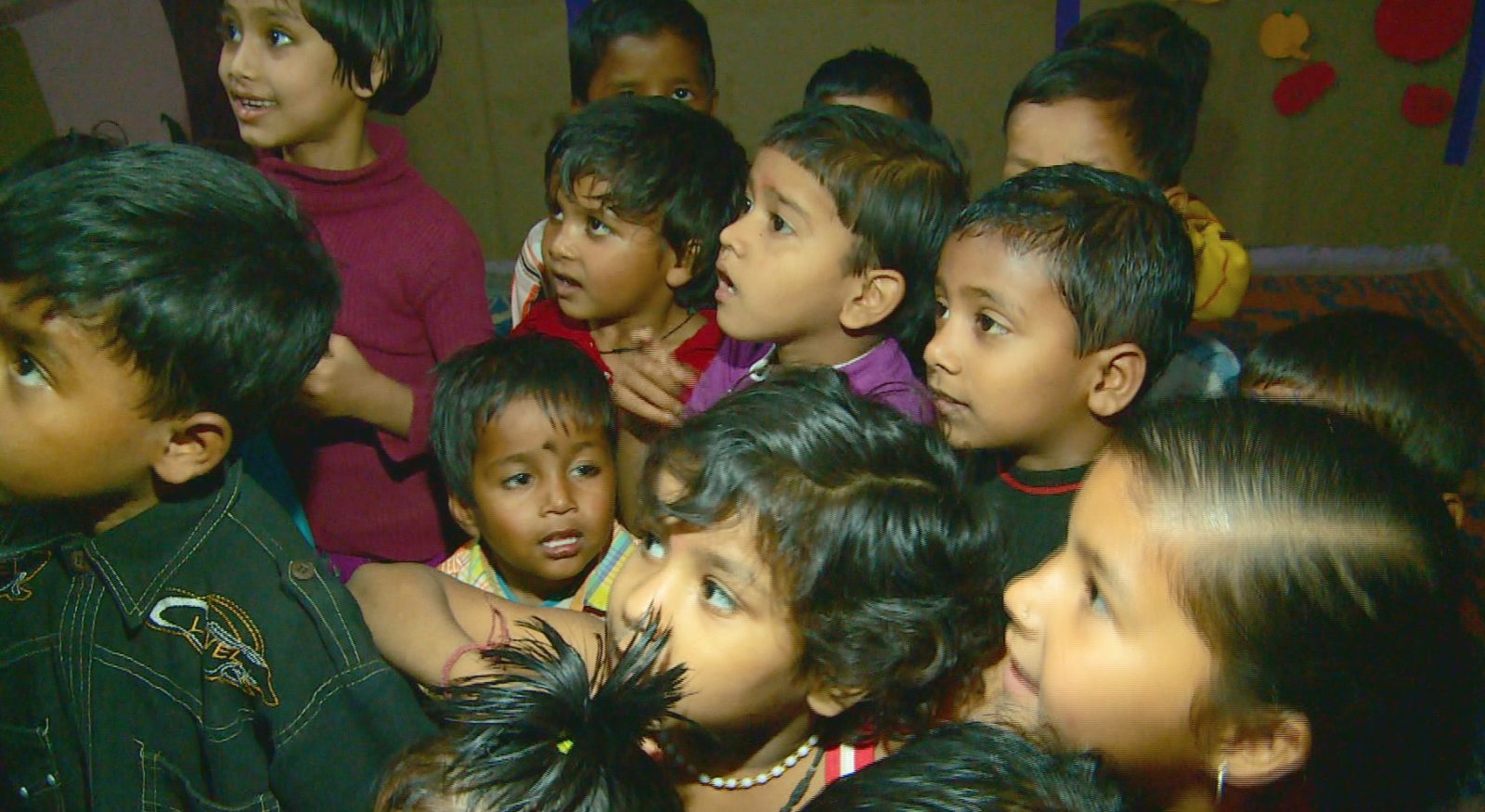
A Bleak Future of Learning
Most of these children will be bound for schools that are failing their students on many levels, beginning with rigid, outdated methods of instruction.
Pratham’s goal is to change the way school has long been perceived here: a solemn temple of learning.
